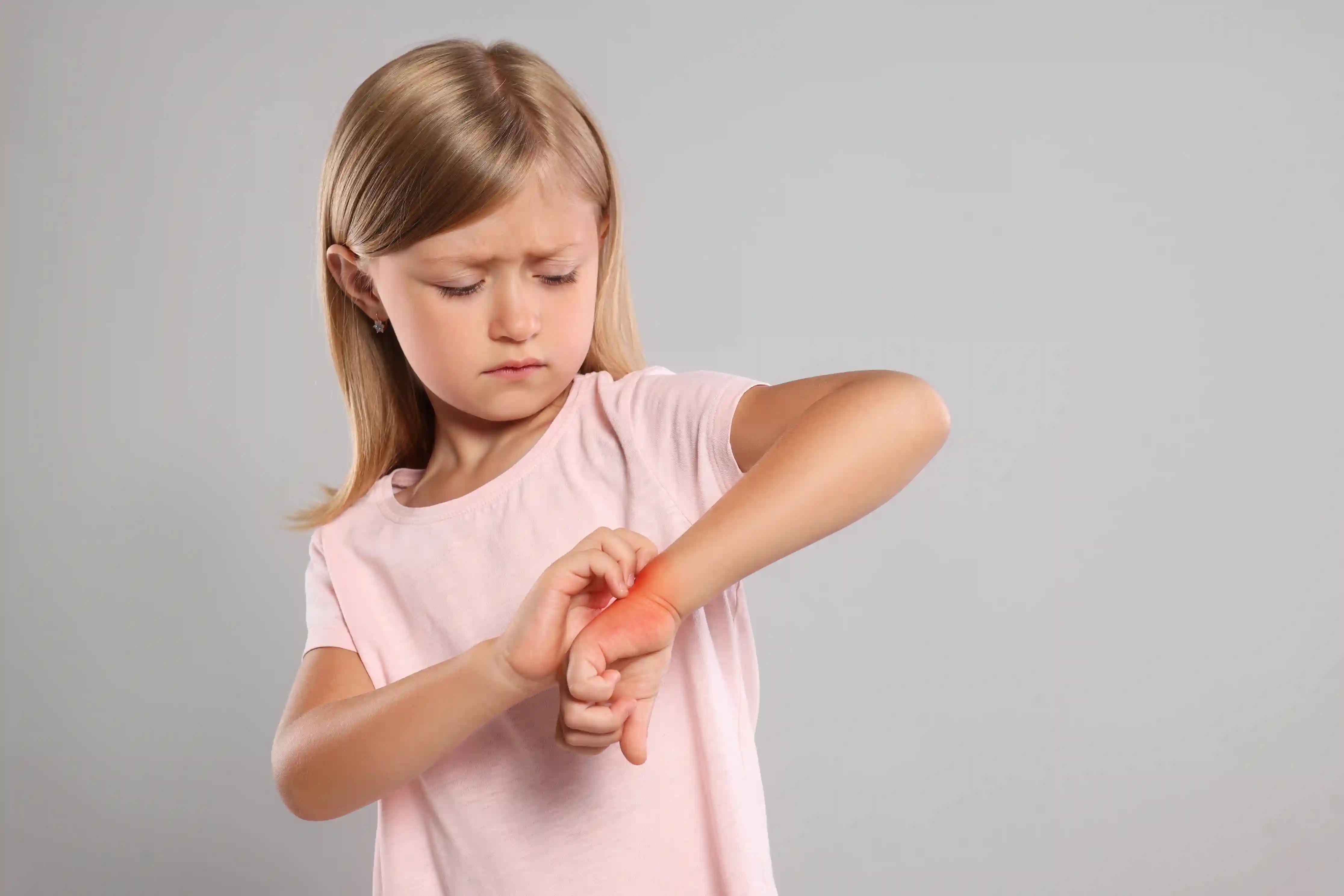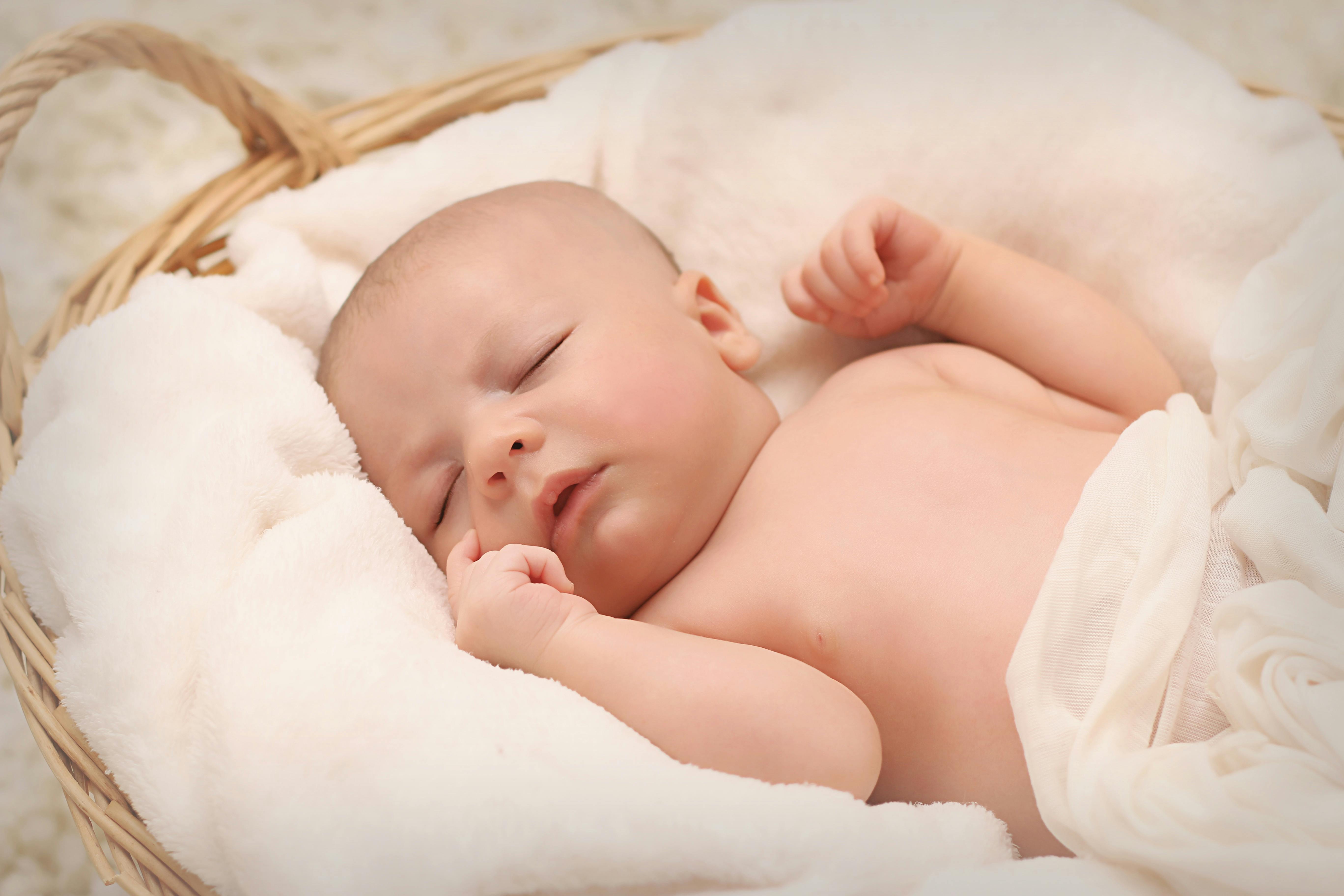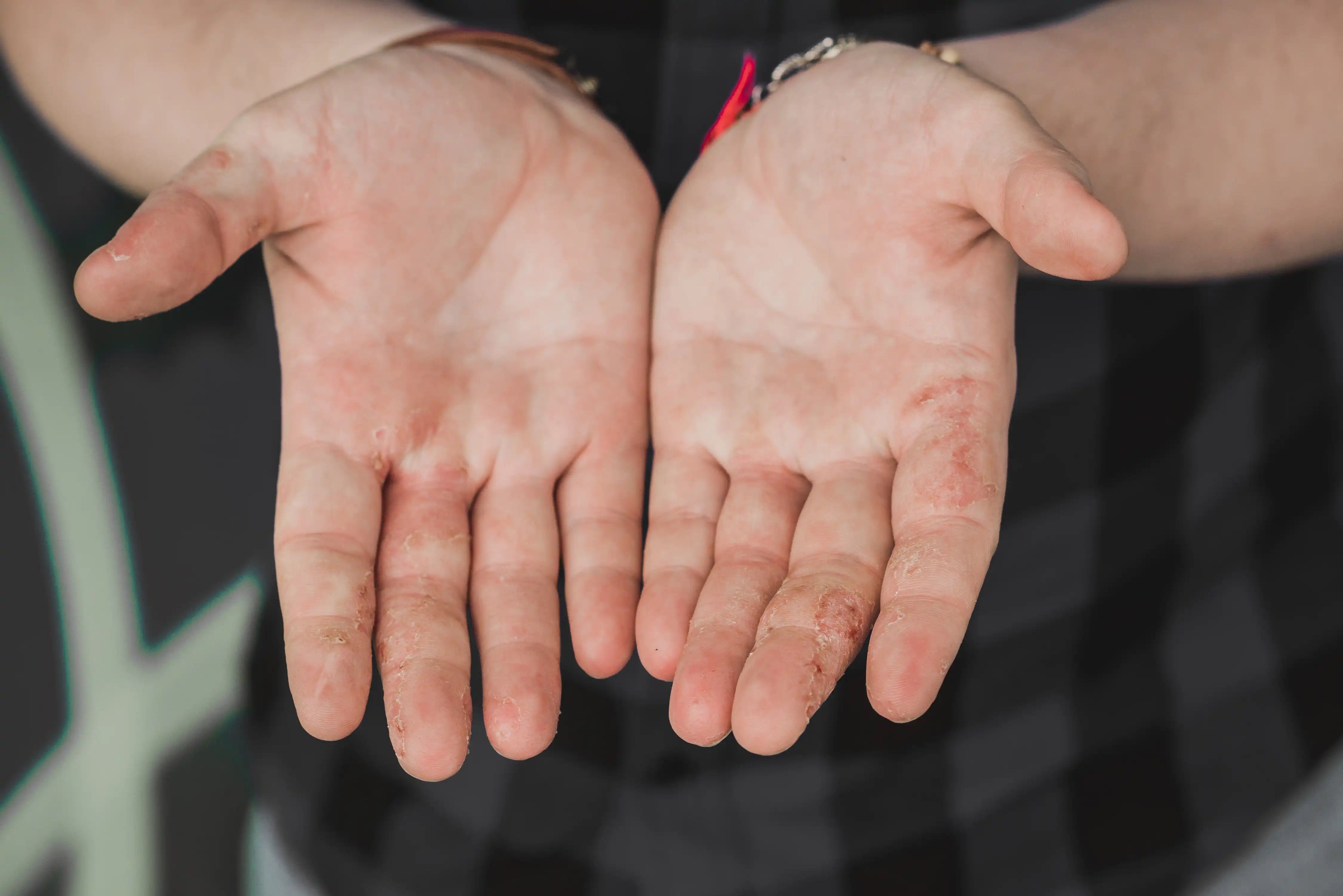Children often suffer from itchy hands—a bothersome symptom with many possible causes, from dry skin to eczema, allergies, or even certain infections.
As a parent, it’s natural to worry when your child says their “hands are itchy.” This clear and educational article will help you understand the potential causes of this issue, recognize warning signs, and learn practical tips to soothe your child and prevent the itch from coming back.
Common Causes of Itchy Hands in Children
➤ Eczema (Atopic or Contact Dermatitis)
Eczema is a leading cause of itchy skin in children. The skin becomes dry, red, irritated, and extremely itchy. In the case of atopic (constitutional) eczema, the dryness and inflammation are due to a genetic predisposition and occur in flare-ups. The itching can be so intense that it disturbs the child’s sleep.
Contact eczema happens when a substance irritates the skin or causes an allergic reaction—such as a new soap, cleaning product, metal (nickel), or plant. The skin becomes dry, peels, and forms red, burning, itchy patches. Eczema is not contagious but can be very uncomfortable in daily life.
➤ Allergies (Hives and Other Allergic Reactions)
An allergic reaction can cause sudden itching on the hands, often accompanied by hives—red, swollen, clearly defined patches that are extremely itchy. Other parts of the body may also be affected.
Triggers may include foods, medications, insect bites, or contact with allergens. If itching is accompanied by facial swelling or difficulty breathing, seek emergency care. Fortunately, most allergic skin reactions subside once the trigger is removed.
➤ Dry Skin (Xerosis)
Excessively dry skin is a common cause of itching, especially on the hands, which are constantly exposed. Cold weather, heating, frequent washing, and unsuitable soaps are common culprits. Dry skin may crack, feel tight, and become itchy.
Dyshidrotic eczema is a specific form caused by excessive sweating of the palms, leading to small, intensely itchy blisters. This can happen in cases of heat or stress.
➤ Infections and Parasites
Scabies is a classic cause of severe itching between the fingers, especially at night. It may leave small visible tracks in the skin. Highly contagious, it requires treatment for both the child and their close contacts.
Fungal infections, though rare in children’s hands, can cause redness and itching between the fingers. Nails may become thick, yellow, or brittle.
Viral infections like chickenpox or hand-foot-and-mouth disease may also cause itching on the hands, often with small blisters.
Warning Signs for Parents
It’s important to monitor how your child’s itching evolves. Some signs should prompt a doctor’s visit:
➤ Persistence or Worsening
If the hand itching persists for several days without improvement, or gets worse despite your care, consult a doctor. Recurring episodes should also be assessed to find the root cause.
➤ Concerning Skin Lesions
Any widespread rash (red patches, blisters, cracks…) should raise concern. Oozing blisters, yellow crusts, or scratched areas with bleeding may indicate infected eczema or impetigo. Local swelling or deep skin cracks also warrant medical attention.
➤ Signs of General Infection or Severe Reaction
If the itching comes with fever, fatigue, or general discomfort, it could be a viral infection like chickenpox. Severe allergic reactions (facial swelling, difficulty breathing, vomiting, widespread hives) require emergency care.
➤ Contagious or Localized Symptoms
Nighttime itching between the fingers may signal scabies. If several family members have symptoms at the same time, seek quick diagnosis and treatment for everyone involved.
➤ Impact on the Child’s Well-being
If itching disrupts your child’s sleep, mood, or focus, it's time to consult a doctor. A child who wakes up frequently or becomes irritable may need treatment to find relief.
Trust your parental instincts—if something seems off with your child’s skin or behavior, consult a healthcare professional for personalized guidance.
Lastly, a simple insect bite may also cause localized itching and a red bump at the site.
Practical Tips to Soothe and Prevent Itchy Hands
If your child’s itchy hands are due to minor issues like dry skin or mild eczema, these tips can help provide relief and prevent recurrence:
➤ Moisturize Regularly
Apply a child-friendly moisturizer twice daily—after washing and before bed. Choose a fragrance-free emollient cream or balm. For very dry skin, apply a thick layer at night and cover with cotton gloves. Proper hydration restores the skin barrier and prevents irritation.
➤ Gentle Handwashing
Use lukewarm water and a fragrance-free gentle soap (like a superfatted bar or cleansing oil). Teach your child to rinse well and pat dry with a clean towel. Moisturize after each wash. Avoid alcohol-based hand gels as much as possible—they dry the skin.
➤ Avoid Scratching and Protect the Skin
Keep nails short and clean. Teach your child to gently rub or press the itchy area instead of scratching. At night, use cotton mittens or full-sleeve sleepwear. Scratching brings short-term relief but worsens irritation—use soothing products instead.
➤ Quick Relief in Case of a Flare-Up
Apply a cold compress or damp cloth to calm severe itching. Calming lotions with calamine or menthol may also help. Don’t underestimate emotional comfort—cuddles, calm, and distraction reduce distress.
➤ Avoid Irritants and Allergens
Identify potential triggers like scented soaps, detergents, paints, plastic toys, or metals like nickel. Use hypoallergenic care products, wash new clothes before wearing, and avoid harsh chemicals. Follow your doctor’s advice if allergies are diagnosed.
➤ Seasonal Skincare Tips
In winter, protect hands with soft gloves (cotton, fleece) and remove them indoors. In summer, avoid prolonged moist hands—dry thoroughly after water play, and use absorbent powder if needed. Apply child-safe sunscreen to protect from sun exposure.
By following these daily care tips, your child’s skin will regain balance. Consistency and patience are key to reducing itchiness and supporting healthy skin.
What If the Itch Persists or Worsens?
Despite good care, itchy hands may require medical treatment. Here are some options (to be discussed with your doctor—never self-medicate):
➤ Moisturizers and Emollient Creams
These are the foundation of treating dry skin and eczema. A rich hydrating ointment may be recommended 1–2 times per day. These over-the-counter products are effective for long-term itch relief.
➤ DOUTOPIA Cream: Natural Relief with Madecassoside
DOUTOPIA cream by Doucéa contains madecassoside, a plant-derived ingredient from Centella Asiatica known for its anti-inflammatory, soothing, and skin-repairing properties.
-
Immediate relief: soothes inflammation and itching.
-
Deep repair: supports skin regeneration.
-
Barrier protection: helps rebuild a healthy skin barrier.
Fragrance-free and dermatologically tested, DOUTOPIA is suitable for children and can be used daily to prevent and relieve itching.
➤ Topical Corticosteroids
For acute eczema, doctors may prescribe a low-dose corticosteroid cream for short-term use. These reduce redness and itching effectively but must be used under medical supervision. Never use without a prescription.
➤ Oral Antihistamines
For allergy-related itching (hives, food reactions...), oral antihistamines may be prescribed from age 2. These relieve itching and help children sleep better during flare-ups.
➤ Antiseptic or Antibiotic Treatments
If the skin is broken or infected (oozing, yellow crusts), apply a mild antiseptic. If infection is confirmed, the doctor may prescribe antibiotic cream or oral medication depending on severity.
➤ Targeted Treatments Based on Cause
-
Scabies: antiparasitic cream for the whole body + treatment for family.
-
Fungal infection: antifungal cream used for several weeks.
-
Severe eczema: dermatologist consultation (UV therapy, immunomodulators...).
-
Severe allergies: allergist-managed care plan, possibly with emergency kit (e.g. epinephrine auto-injector).
Conclusion
Itchy hands in children are most often caused by mild conditions like dryness or eczema, and can be effectively managed with the right care.
Stay alert to persistent or unusual symptoms and don’t hesitate to consult your pediatrician or dermatologist. With proper treatment—whether basic hygiene or medical care—your child can regain comfort and enjoy daily life without itchiness.
Sources: This article is based on reliable medical sources and validated by health professionals. Since each child is unique, a personalized medical opinion is always the safest approach.
















